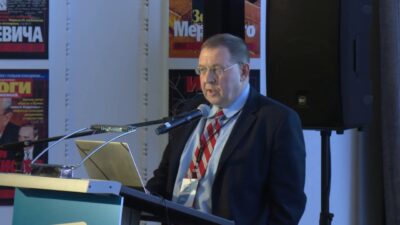The performance of the mercenaries of the Wagner PMC and the prolonged lack of response from the authorities and security forces increases the risks of instability in Russia, the struggle for power, and undermines the position of Vladimir Putin. In addition, the question of safety of nuclear weapons in a situation of possible chaos takes on additional importance. This will further unite Western countries and force Ukraine to seek NATO membership, according to The Wall Street Journal.
Recent events may also push Putin to take more drastic measures in an effort to demonstrate that he is still in control of the situation in the country. This increases the level of uncertainty and the risks of unpredictable developments. Even in the case of nuclear weapons, Western experts have different opinions.
“Any time there are signs of instability in a country as large as Russia, it causes some concern”, U.S. Secretary of State Anthony Blinken told CNN Sunday. The U.S. is “very closely” monitoring the situation with Russian nuclear weapons, he added.
On their way to Moscow, Wagner forces passed within about 150 kilometers of two former nuclear weapons storage sites, Voronezh-45 and Tula-50, but it is unknown whether they are there now, said Hans Christensen of the Federation of American Scientists. It is unclear how effectively the security services will be able to protect the nuclear arsenal, several former U.S. officials shared their concerns with the WSJ.
At the same time, recent events have weakened Putin’s position so much that this, on the contrary, reduces the possibility of a nuclear conflict, because his subordinates are now less likely to be willing to take orders from the president, a Western intelligence official told the paper.
Russia, with its weakened power and internal instability, poses additional challenges to NATO countries. They are watching and coordinating even more actively, an approach they believe has served them well since the U.S. realized in 2021 that Moscow was preparing an armed attack on Ukraine.
“A unified approach yields good results”, says Rosa Balfour, director of the Carnegie Europe Center. Until recently, Western countries’ views on relations with Russia still differed: Some still tried to negotiate with it, while others advocated a tougher approach. Now the NATO countries are following a common strategy.
If such a rebellion had happened a year ago, it would have posed a big problem for the West, Balfour believes: Some leaders would have supported speaking out against Putin, while others would have defended him as a guarantor of stability. “Today I don’t see such a difference [in views]”, she states.
At the NATO summit, which begins July 11 in Vilnius, the alliance countries are expected to approve changes to defense plans that, for the first time since the end of the Cold War, will be based on scenarios of a complex, “hot” war in Europe unfolding on several fronts. Ukraine, on the other hand, is likely to be even more active in demanding approval of a clear plan for its admission to the alliance.





